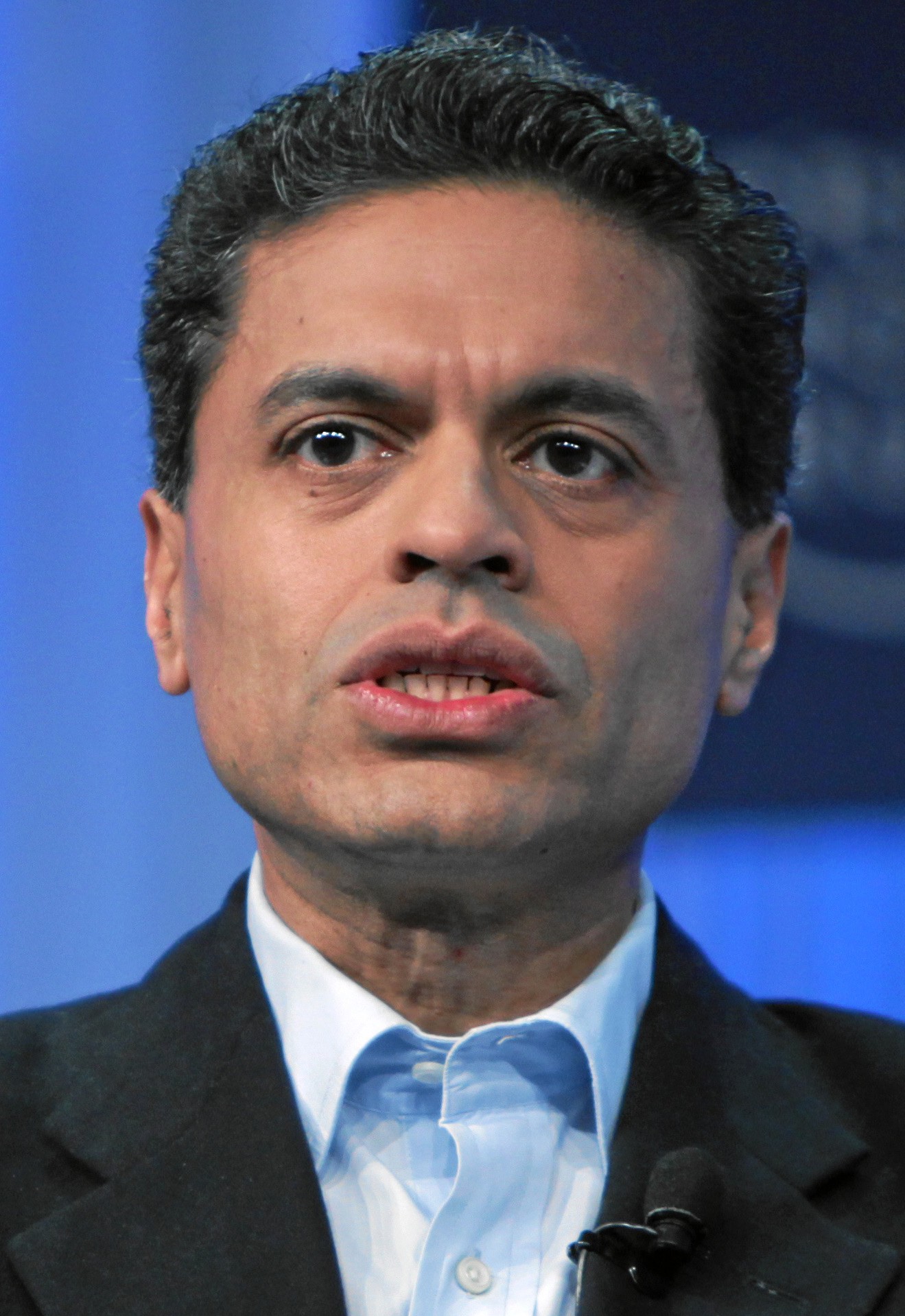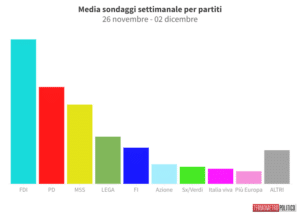Il declino dell’impero americano

[ad]Vi propongo questo articolo che e’ assolutamente brillante, persino i commenti a questo articolo sono interessanti.
Questo e’ il genere di analisi (un po’ elitaria lo ammetto) che io adoro, altro che le polemiche urlate alle quali ci siamo purtroppo assuefatti…
questa e’ analisi politica-economica-storica allo stato puro, ne faro’ un breve preambolo al quale segue l’articolo originale. Stiamo parlando di analogie storiche e geopolitiche che riguardano le nazioni dominanti nel corso dei secoli. Fino alla fine del diciottesimo secolo la cultura occidentale usava ancora il latino come lingua comune, basti pensare che uno dei piu’ importanti trattati filosofici passato poi alla storia come la “dissertazione del 70″ (essendo stata pubblicata nel 1770 da parte di Immanuel Kant) era in latino e si intitolava “de mundi sensibilis atque intelligibili forma et principiis”. Questo da’ l’idea del fatto che fino a quell’epoca il picco massimo relativo di civilta’ raggiunto dall’impero romano non era stato ancora superato da nessuna altra nazione occidentale almeno dal punto di vista culturale-geopolitico. Con l’arrivo della rivoluzione industriale le cose cambiano e l’inglese inizia a soppiantare il latino come lingua usata in ambito culturale scientifico filosofico allo scopo di rendere internazionale un lavoro. Certo molti saggi e libri vengono scritti in tedesco, francese, italiano, tuttavia anche per quei testi la traduzione in inglese diventa ben presto quasi d’obbligo. Durante tutto il diciannovesimo secolo il predominio della perfida albione sul resto dell’occidente e’ raramente messo in discussione e a partire dal 1840 circa questo dominio diventa mondiale con il sorpasso sulla Cina. Un dominio che inizia a scricchiolare presto per la verita’, visto che sotto alcuni aspetti gli USA superano dopo pochi decenni il Regno Unito (produttivita’), tuttavia la supremazia inglese, nel complesso, perdura ancora a lungo sia in termini militari che politici. Prima che gli USA diventino davvero la nazione dominante si deve aspettare almeno la fine della Grande Guerra, ma fino a li il predominio americano si evidenzia soprattutto in termini finanziari e di produttivita’. Infatti come dicevamo gia’ dalla fine del diciannovesimo secolo gli USA iniziano a produrre piu’ del Regno Unito, con la Grande Guerra gli USA iniziano a prestare soldi a tutti assumendo decisamente la leadership finanziaria. Dalla seconda guerra mondiale gli USA prendono il comando in maniera netta e inequivocabile su tutti i fronti, quindi anche da un punto di vista politico. Il Regno Unito malgrado abbia vinto tutte le guerre diventa poco piu’ che una comparsa. L’analisi che segue entra maggiormente nel dettaglio delle similitudini tra il declino del Regno Unito di un secolo fa ed il declino degli USA adesso. Da notare che la minaccia maggiore viene dalla Cina che e’ poi in fondo era la nazione piu’ potente prima del 1840, almeno in termini di produttivita’. La Cina oltretutto sta facendo la stessa cosa che facevano gli USA all’inizio del ventesimo secolo: prestare soldi. Un copione che sembra scritto e che certo l’amministrazione Bush ha accelerato.

The Future of American Power
By Fareed Zakaria
On June 22, 1897, about 400 million people around the world — one-fourth of humanity — got the day off. It was the 60th anniversary of Queen Victoria’s ascension to the British throne. The Diamond Jubilee stretched over five days on land and sea, but its high point was the parade and thanksgiving service on June 22. The 11 premiers of Britain’s self-governing colonies were in attendance, along with princes, dukes, ambassadors, and envoys from the rest of the world. A military procession of 50,000 soldiers included hussars from Canada, cavalrymen from New South Wales, carabineers from Naples, camel troops from Bikaner, and Gurkhas from Nepal. It was, as one historian wrote, “a Roman moment.”
In London, eight-year-old Arnold Toynbee was perched on his uncle’s shoulders, eagerly watching the parade. Toynbee, who grew up to become the most famous historian of his age, recalled that, watching the grandeur of the day, it felt as if the sun were “standing still in the midst of Heaven.” “I remember the atmosphere,” he wrote. “It was: ‘Well, here we are on top of the world, and we have arrived at this peak to stay there forever. There is, of course, a thing called history, but history is something unpleasant that happens to other people. We are comfortably outside all of that I am sure.’”
But of course, history did happen to Britain. The question for the superpower of the current age is, Will history happen to the United States as well? Is it already happening? No analogy is exact, but the British Empire in its heyday is the closest any nation in the modern age has come to the United States’ position today. In considering whether and how the forces of change will affect the United States, it is worth paying close attention to the experience of Britain.
There are many contemporary echoes. The United States’ recent military interventions in Somalia, Afghanistan, and Iraq all have parallels in British military interventions decades ago. The basic strategic dilemma of being the only truly global player on the world stage is strikingly similar. But there are also fundamental differences between Britain then and the United States now. For Britain, as it tried to maintain its superpower status, the largest challenge was economic rather than political. For the United States, it is the other way around.
Through shrewd strategic choices and some sophisticated diplomacy, Britain was able to maintain and even extend its influence for decades. In the end, however, it could not alter the fact that its power position — its economic and technological dynamism — was fast eroding. Britain declined gracefully — but inexorably. The United States today faces a problem that is quite different. The U.S. economy (despite its current crisis) remains fundamentally vigorous when compared with others. American society is vibrant. It is the United States’ political system that is dysfunctional, unable to make the relatively simple reforms that would place the country on extremely solid footing for the future. Washington seems largely unaware of the new world rising around it — and shows few signs of being able to reorient U.S. policy for this new age.
BRITANNIA’S DEMISE
Today, it is difficult even to imagine the magnitude of the British Empire. At its height, it covered about a quarter of the earth’s land surface and included a quarter of its population. London’s network of colonies, territories, bases, and ports spanned the globe. The empire was protected by the Royal Navy, the greatest seafaring force in history, and linked by 170,000 nautical miles of ocean cables and 662,000 miles of aerial and buried cables. British ships had facilitated the development of the first global communications network, via the telegraph. Railways and canals (the Suez Canal most importantly) deepened the connectivity of the system. Through all of this, the British Empire created the first truly global market.
Americans often talk about the appeal of their culture and ideas, but “soft power” really began with Britain. The historian Claudio Véliz points out that in the seventeenth century, the two imperial powers of the day, Britain and Spain, both tried to export their ideas and practices to their western colonies. Spain wanted the Counter-Reformation to take hold in the New World; Britain wanted religious pluralism and capitalism to flourish. As it turned out, British ideas proved more universal. In fact, Britain has arguably been the most successful exporter of its culture in human history. Before the American dream, there was an “English way of life” — one that was watched, admired, and copied throughout the world. And also thanks to the British Empire, English spread as a global language, spoken from the Caribbean to Cape Town to Calcutta.
Not all of this was recognized in June 1897, but much of it was. The British were hardly alone in making comparisons between their empire and Rome. Paris’ Le Figaro declared that Rome itself had been “equaled, if not surpassed, by the Power which in Canada, Australia, India, in the China Seas, in Egypt, Central and Southern Africa, in the Atlantic and in the Mediterranean rules the peoples and governs their interests.” The Kreuz-Zeitung in Berlin described the empire as “practically unassailable.” Across the Atlantic, The New York Times gushed, “We are a part, and a great part, of the Greater Britain which seems so plainly destined to dominate this planet.”
Britain’s exalted position, however, was more fragile than it appeared. Just two years after the Diamond Jubilee, Britain entered the Boer War, a conflict that, for many scholars, marks the moment when British power began to decline. London was sure that it would win the fight with little trouble. After all, the British army had just won a similar battle against the dervishes in Sudan, despite being outnumbered by more than two to one. In the Battle of Omdurman, it inflicted 48,000 dervish casualties in just five hours while losing only 48 soldiers of its own. Many in Britain imagined an even easier victory against the Boers. After all, as one member of Parliament put it, it was “the British Empire against 30,000 farmers.”
The war was ostensibly fought for a virtuous reason: to defend the rights of the English-speaking people of the Boer republics, who were treated as second-class citizens by the ruling Boers. But it did not escape the attention of London that after the discovery of gold in the region in 1886, these republics had been producing a quarter of the world’s gold supply. In any event, the Boers launched a preemptive strike, and war began in 1899.
Things went badly for Britain from the beginning. It had more men and better weapons and was fielding its best generals (including Lord Kitchener, the hero of Omdurman). But the Boers were passionate in defending themselves, knew the land, and adopted successful guerrilla tactics that relied on stealth and speed. The British army’s enormous military superiority meant little on the ground, and its commanders resorted to brutal tactics — burning down villages, herding civilians into concentration camps (the world’s first), sending in more and more troops. Eventually, Britain had 450,000 troops fighting a militia of 45,000.
The Boers could not hold back the British army forever, and in 1902 they surrendered. But in a larger sense, Britain lost the war. It had suffered 45,000 casualties, spent half a billion pounds, stretched its army to the breaking point, and discovered enormous incompetence and corruption in its war effort. Its brutal wartime tactics, moreover, gave it a black eye in the view of the rest of the world. At home, all of this created, or exposed, deep divisions over Britain’s global role. Abroad, every other great power — France, Germany, the United States — opposed London’s actions. “They were friendless,” the historian Lawrence James has written of the British in 1902.
Fast-forward to today. Another superpower, militarily unbeatable, wins an easy victory in Afghanistan and then takes on what it is sure will be another simple battle, this one against Saddam Hussein’s isolated regime in Iraq. The result: a quick initial military victory followed by a long, arduous struggle, filled with political and military blunders and met with intense international opposition. The analogy is obvious; the United States is Britain, the Iraq war is the Boer War — and, by extension, the United States’ future looks bleak. And indeed, regardless of the outcome in Iraq, the costs have been massive. The United States has been overextended and distracted, its army stressed, its image sullied. Rogue states such as Iran and Venezuela and great powers such as China and Russia are taking advantage of Washington’s inattention and bad fortunes. The familiar theme of imperial decline is playing itself out one more time. History is happening again.
(per continuare la lettura cliccare su “2”)
